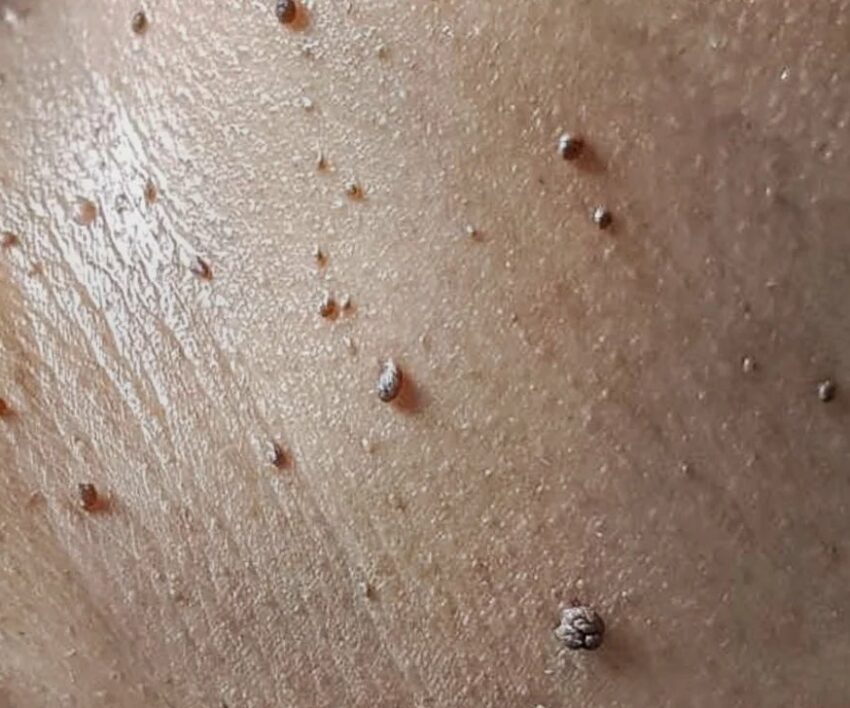
Skin tags are a common occurrence that most people have encountered either through personal experience or by observing them on others.
While the condition does not cause any discomfort or real irritation, there is a possibility of witnessing them multiply from being one to eventually covering a large part of the body – this is usually the time when most people become conscious about them and want them removed immediately.
However, removing them on your own is not a good idea. Furthermore, it is much wiser to know more about it and what causes it to prevent returning when you eventually have it removed with proper medical assistance.
The American Academy of Dermatology Association explains that, “Skin tags are harmless growths that can appear anywhere on your skin, but often develop on the neck, eyelids, or underarms. They may be the same colour as your skin or darker. Some are pink. Others turn red when irritated. You may see one dangling from a stalk, while another is firmly fixed to the skin.”
In addition, the reputable medical information hub, Medical News Today explains that they are more than just excess skin on the surface of our bodies, but that they consist of fibres, ducts and nerve cells.
Causes
While there is no clear indication of what exactly causes skin tags, the above-mentioned publication does explain that it may develop, “when clusters of collagen and blood vessels become trapped inside thicker pieces of skin.”
It has been highlighted that the following are at most risk of getting skin tags:
- People who are overweight and obese
- Those with diabetes
- Women during pregnancy, possibly due to hormonal changes and high levels of growth factors
- Those with some types of human papillomavirus (HPV)
- People with a sex-steroid imbalance, especially if there are changes in levels of estrogen and progesterone
- Those whose close family members also have skin tags
Also see: How much protein do you need to build muscle?




